Access to Jobs
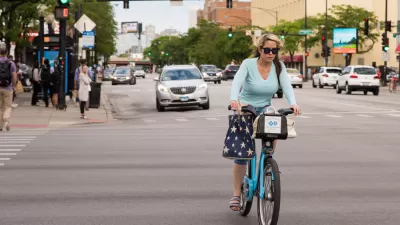
Micromobility Plus Transit Equals Jobs
Linking micromobility options to public transit can improve job acessibility, new research finds.
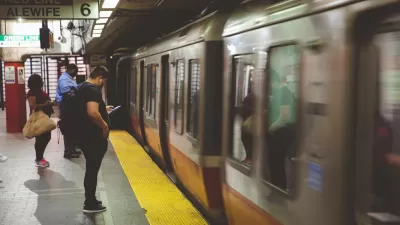
Assessing Transit Equity in Boston
The Transit Equity Dashboard highlights stark disparities in access to jobs, healthcare, and other essential services between Boston neighborhoods.
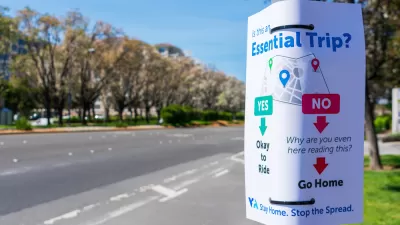
Opinion: Transit Has Always Been an Essential Service
Ridership is the wrong way to think about the importance of public transit.
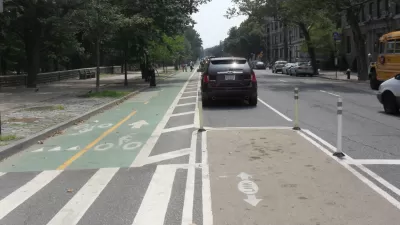
Bike Infrastructure and Economic Opportunity
A study from the University of Minnesota documents how bike infrastructure can connect workers to jobs, maps job accessibility and ranks U.S. cities by bike access to jobs.

Easy Ways to Boost Suburban Transit
New research outlines how to make public transportation a better option for suburban commuters.

Land Bank Trends in 2018
An economic development professional shares three key takeaways from a recent conference focused on land baking practices.
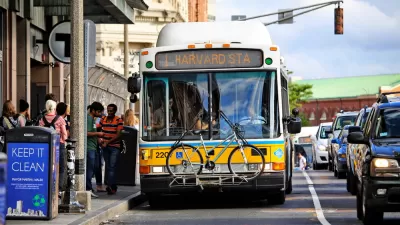
How Transportation Assistance Can Fight Homelessness
Transportation access is one of the biggest factors in keeping people out of homelessness. Cities can help with discounted fares and last-mile connections.
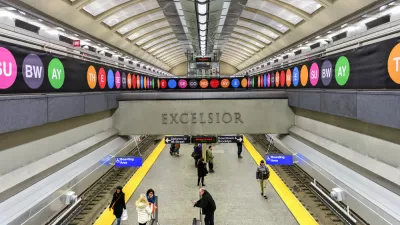
Study Quantifies Job Access in U.S. Cities
An annual survey by the Accessibility Observatory at the University of Minnesota measures job availability, job location, population density, and the availability of transit.

Better Land Use Planning: One of the Best Ways to Improve Transportation
Smart growth advocates have been making this point for years, but a new report from the Washington, D.C. regional planning organization provides more evidence for the strategic location of population and job growth.
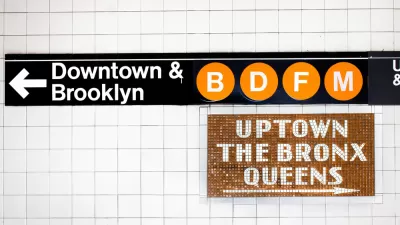
Comparing Metropolitan Areas by Transit-Accessible Jobs
The University of Minnesota has released its annual "Access Across America" report.

More Transportation Options Needed to Connect Workers and Jobs in the Twin Cities
A new study identifies the disconnect between employees and employers in the Twin Cities region. The report also predicts dramatic improvements if the region's long-term transportation plans are realized.

Metropolitan Corridors Absorb Rural Counties
As urban economies continue their upward trajectory, residents of counties once considered rural are commuting to cities. This has had both negative and positive effects on the communities in question.

3 Examples of Transit-Oriented Affordable Housing Policies
Mobility Lab tackles the challenges of building affordable housing near transit (i.e., transit-oriented affordable housing) by providing specific, real-world examples from cities and states.
The Power of Houston's 'Magic Bus'
The Neighborhood Centers non-profit operates a bus named for the Who song "Magic Bus" to fill the fundamental needs of low income residents of Houston: access to jobs, healthcare, markets, and home.

Economic Underperformance Tied to Bad Commutes
The price of long commutes can't just be measured in lost hours. Income segregation, job sprawl, and the resulting negative feedback on families eats into overall economic and social well-being.
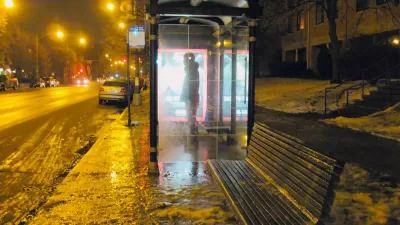
Poor Suburbs Struggle with Job Sprawl
Although unemployment has declined, according to this report commutes are getting longer. "Job sprawl" often plagues minority and poor areas where housing is more affordable.
Fracking Permits Temporarily Halted in North Carolina
Natural gas drilling was recently approved in North Carolina, but new operations are now on hold until the state Supreme Court resolves an issue about the process for appointing environmental review positions.

Seattle Lowers Transit Fares for Low-Income Residents
Joining Chicago, Cincinnati, Denver, and Kansas City, Seattle now offers reduced bus fares to low-income residents. Some worry the program entrenches class differences and doesn't truly aid social mobility.
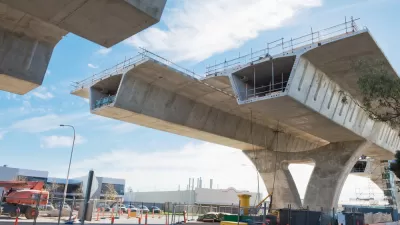
U.S. DOT Will Allow and Encourage Local Hiring
The U.S. Department of Transportation has changed its rules in favor of local hiring: a pilot program will even encourage it. Minorities traditionally barred from high-paying construction work stand to benefit.

Why Is Minneapolis Growing Faster Than Chicago?
The data shows Minneapolis recovered from the recession more quickly than Chicago. And its growth rates continue to surpass those of its larger neighbor. Why did this happen, and which policies deserve credit?
Pagination
Urban Design for Planners 1: Software Tools
This six-course series explores essential urban design concepts using open source software and equips planners with the tools they need to participate fully in the urban design process.
Planning for Universal Design
Learn the tools for implementing Universal Design in planning regulations.
Gallatin County Department of Planning & Community Development
Heyer Gruel & Associates PA
JM Goldson LLC
City of Camden Redevelopment Agency
City of Astoria
Transportation Research & Education Center (TREC) at Portland State University
Jefferson Parish Government
Camden Redevelopment Agency
City of Claremont


































